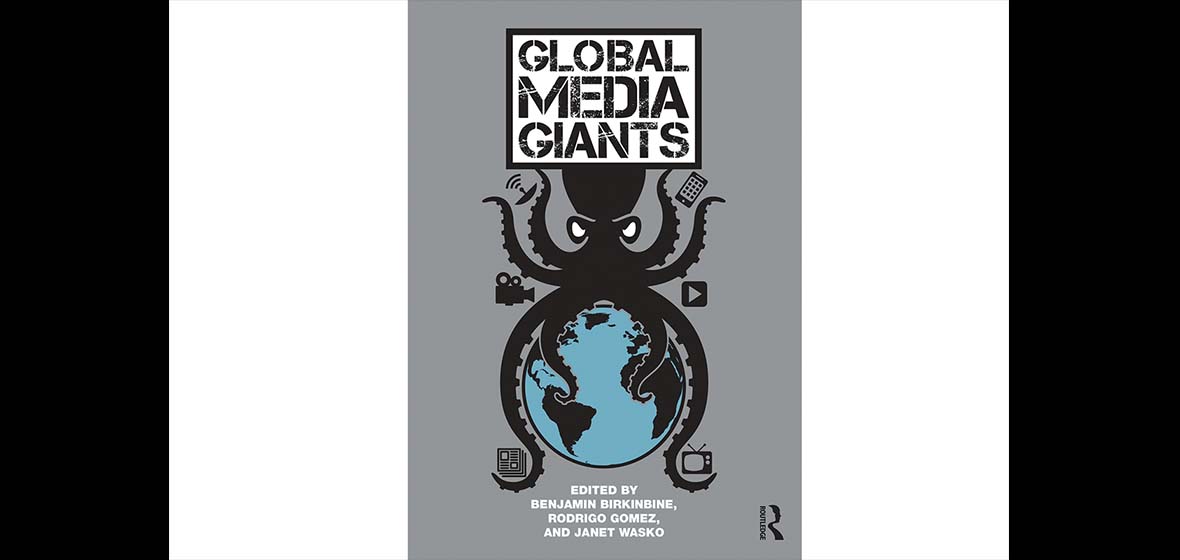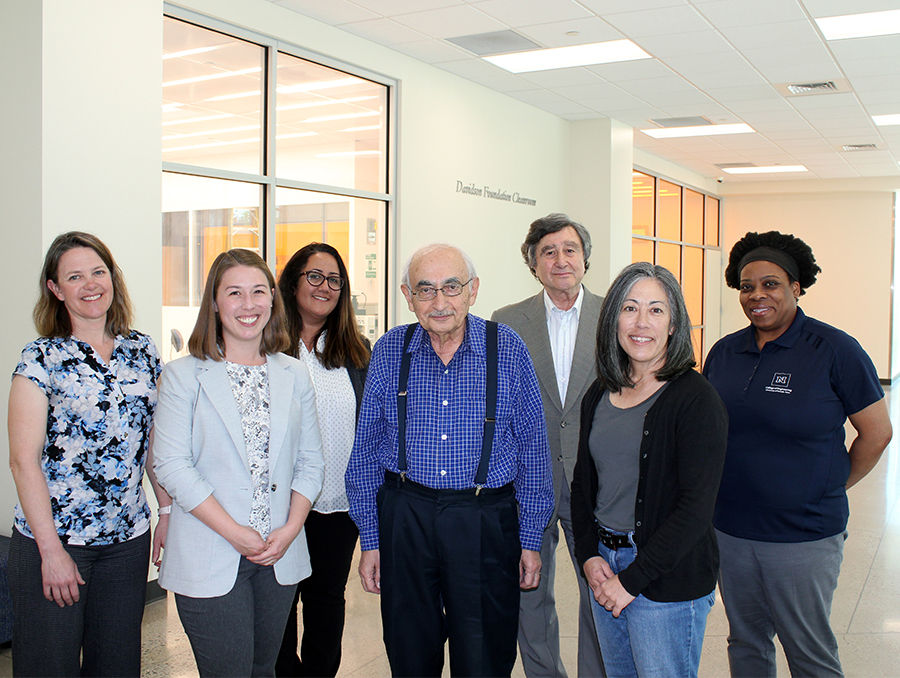Reynolds School Assistant Professor Benjamin Birkinbine recently celebrated the completion of an important project, the publishing of "Global Media Giants," a book he co-edited as well as contributed a case study to analyzing the Microsoft Corporation.
The book is a collection of case studies, each focusing on a particular media company that has an influence on the way that communication and media industries are organized. In addition, the book contains chapters that focus on particular regions around the world. Those chapters focus on the media industries within a specific region and how they connect with other media giants.
Companies analyzed include, but are not limited to: Apple, Facebook, Amazon, Google, Sony, Time Warner and The Walt Disney Company. Regions of the world analyzed include: South America, The Middle East, Sub-Saharan Africa, Easter Europe, South Asia and East Asia and China.
Professionally, this book serves as a launching point for Birkinbine's academic career at the Reynolds School.
"I've had individual articles published, but this was my first book project," Birkinbine said. "Because the contributing authors are experts on the subjects involved, the hope is that the book will draw a significant amount of attention, especially internationally. If that happens, then this book could increase recognition of my own work as well as the Reynolds School at the University of Nevada, Reno."
The editors, Rodrigo Gomez, Janet Wasko and Birkinbine, asked case study authors to comment on the economic, political, and cultural influence of each company featured in the book as well as how all of these are interconnected.
"By understanding which media properties are owned by a larger company, we can understand why certain television programs look the way they do," Birkinbine said. "For example, if you know that the Walt Disney Corporation owns both ABC (television) and Hollywood Records (music), you would understand why ABC's "Dancing With The Stars" devoted a couple's dance competition to the music of Queen, specifically "We Will Rock You."
This is an example of Disney using synergy between two different properties that it owns."
This is just one example of content Birkinbine uses in the media literacy classes he teaches at the Reynolds School.
"Rather than simply talking about commodities, markets, corporate structures, ownership, intellectual property, etc., I use real-life examples of how these factors affect what we see in media," Birkinbine said. "This is one way of showing students to see behind what is presented to them in various programs to uncover the economic relationships that shape the way the program is presented."
"This project was an incredibly rewarding experience," he said. "This is my first book and, because it was an edited volume, it gave me great experience in working with a publisher as well as all the other authors who contributed to the book."
Faculty research such as this elevates the profile of the Reynolds School.
"This pioneering book by Ben and his colleagues enhances our understanding of one of the central issues of contemporary media," Said Al Stavitsky, Dean of the Reynolds School. "It demonstrates the increasing impact of Reynolds School faculty research.
About Benjamin Birkinbine:
Birkinbine came to the Reynolds School from the University of Oregon where he earned a doctorate degree from the School of Journalism and Communication.
He approaches the study of communications from three intersecting perspectives: political economy, critical theory and, more recently, some aspects of science and technology studies .
His research focuses mainly on the politics and economics of media industries and technological change. His teaching interests are much broader and include communication theory, political economy of communication, communication law, open source technologies, media history and introductory courses to communication and media.
Birkinbine holds a bachelor of communications from the University of Wisconsin-Green Bay and a master of arts in Media Theory & Research from Southern Illinois University Carbondale and a doctorate degree from the School of Journalism and Communication at the University of Oregon. His dissertation was titled, "Incorporating the commons: A political economic analysis of corporate involvement in free software projects."
About Global Media Giants:
Global Media Giants takes an in-depth look at how media corporate power works globally, regionally, and nationally, investigating the ways in which the largest and most powerful media corporations in the world wield power. Case studies examine not only some of the largest media corporations (News Corp, Microsoft) in terms of revenues, but also media corporations that hold considerable power within national, regional, or geolinguistic contexts (Televisa, Bertelsmann,Sony). Each chapter approaches a different corporation through the lens of economy, politics,and culture, giving students and scholars a thoughtful and data-driven guide with which to interrogate contemporary media industry power.
The reviews are in and here are a few things being said about Global Media Giants:
"A brilliant conception, masterfully executed. The editors have given us a path-breaking survey of capitalist power over world communications - conglomerate by conglomerate, region by region, and product by product, from TV program ratings to smartphone apps."
-Dan Schiller, University of Illinois at Urbana-Champaign
"This authoritative and encyclopaedic volume provides a rich, systematic, and comprehensive analysis of one of the most devastating and significant developments of our century, the universal domination of culture, information, and communications by ever more powerful private corporations."
-Peter Golding, Northumbria University
"This is without doubt the essential guide to the communication companies that define today's media-saturated world."
-Vincent Mosco, author of To the Cloud: Big Data in a Turbulent World
"This systematic global overview of the most powerful media corporations shows the present-day inequalities of global capitalism through the lenses of converging media and information services, revealing both the dominating forces and the on-going resistances."
-Helena Sousa, University of Minho, Portugal












